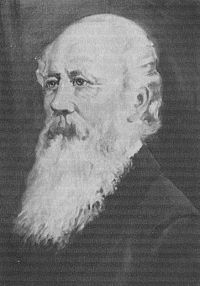At the time of confederation in what is now known as Atlantic Canada, many people were wary of Canada, due to religious differences, political woes, rumours and a desire to be independent. From this spawned the Anti-Confederate Movement.
Charles Fox Bennett was the leader of the Anti-Confederation Party in Newfoundland throughout the 1860s. Bennett was a successful businessman, and one of the richest people in Newfoundland at the time. Bennett defeated the government of the pro-Confederates in 1869,successfully postponing the Confederation of Newfoundland until after the great depression, in 1948. He later changed his focus from confederation after he became the Premier of Newfoundland from 1870 to 1874. He died on December 5th, 1883.

The Nova Scotia Anti-Confederation Party was led by Joseph Howe.Their goal was to reverse the recent addition of Nova Scotia to Confederation. However, Howe had figured joining confederation would come eventually and was easily swayed towards Confederation by John A. MacDonald and his cabinet, which he became a member of soon after. The Nova Scotia Anti-Confederation Party collapsed in 1869. Joseph Howe passed away in 1873.

The Anti-Confederate Party in New Brunswick was led by Albert J. Smith. Unlike the other Anti-Confederates, which were mainly Liberals and their supporters were mainly Tories, the New Brunswick Party had a rather even mix. Both Anti-Confederate and pro-Confederate parties were a combination of Tories and Reformers (a.k.a, Liberals). By 1870 Anti-Confederates and Pro-Confederates had faded away become the old Liberal and Tory parties. Smith died on June 30, 1883.

Ultimately, the entirety of the Anti-Confederation movement fell apart after the Confederation period had died down.(1870's)